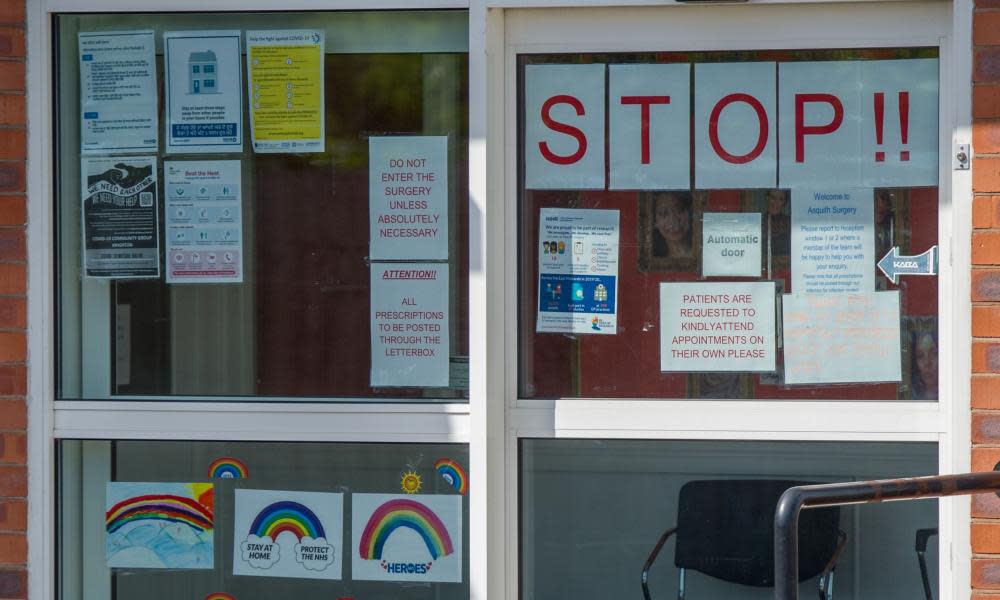UK health inequalities made worse by Covid crisis, study suggests

The coronavirus crisis has disrupted routine healthcare disproportionately across society with women, older people and minority ethnic groups most likely to report cancelled or delayed appointments, prescriptions and procedures, researchers say.
Public health experts trawled through data from nearly 70,000 people enrolled in 12 major UK studies that surveyed the population before and during the epidemic. They found evidence for widespread inequalities, with disadvantaged groups often facing the greatest disruption to their medical care.
“Many of the people who report experiencing the greatest healthcare disruption often had poorer health prior to the pandemic,” said Vittal Katikireddi, a senior author on the study and a professor of public health at the University of Glasgow. “While experiencing healthcare disruption is common across all social groups, our study raises the possibility that the health of the most disadvantaged in society might actually be more impacted by the disruption to the health system.”
He added: “Prior to the pandemic the UK had large health inequalities, with the health of more disadvantaged social groups often worse. This problem had actually been getting worse even before the pandemic and there is a real risk that it could actually get much worse.”
The dozen studies included responses recorded between March 2020 and late January this year. The researchers’ analysis found that women were 27% more likely than men to report disruption to their healthcare, with 16 to 24-year-olds experiencing twice as many problems as similar-aged men.
Overall, older people witnessed more issues with their GPs and hospital care, the analysis found, with 39% more glitches reported by 65 to 75-year-olds than those in their mid-40s to mid-50s. Older adults were most likely to have delayed or cancelled medical appointments and planned procedures compared with younger people.
The research, led by UCL and the University of Glasgow, found further evidence that minority ethnic groups were more likely to have their healthcare affected by the Covid crisis than white people, with the combined results of the 12 studies suggesting minority ethnic groups reported 19% more problems during the epidemic. The disparity was even worse among those who were shielding because they were particularly vulnerable to the disease.
A similar picture emerged when the researchers compared survey responses from those in the lowest and highest occupational groups, with 17% more healthcare disruption reported by those in manual and routine jobs versus managers and professionals.
Writing in a preprint, which has yet to be peer-reviewed, the researchers describe how the analysis demonstrates “marked inequalities in healthcare disruption” during the epidemic, affecting routine appointments, prescriptions, and procedures or surgery. The greater problems reported by black people are of “particular concern”, they say, given the ethnic inequalities in access to healthcare before the epidemic struck.
“Unfortunately, we have seen that the pandemic has often widened inequalities that already existed,” said Prof Katikireddi. “We are now increasingly seeing that not only are the direct harms of Covid-19 infections, hospitalisations and deaths affecting the most disadvantaged in society, the same is often true for some of the indirect consequences of the pandemic.”
He added: “We know from previous evidence that barriers to healthcare often affect more socially disadvantaged people to a greater extent and unfortunately the pandemic often made it more difficult for people to access healthcare.
“Before the pandemic, many NHS organisations focused on ensuring that services were as accessible as they could be for people when they need them. As we hopefully start to recover from the pandemic, it will be important to make sure we keep that focus on making sure healthcare is easy to reach for everyone – not only for the majority of the population – is regained.”

 Yahoo Movies
Yahoo Movies 
